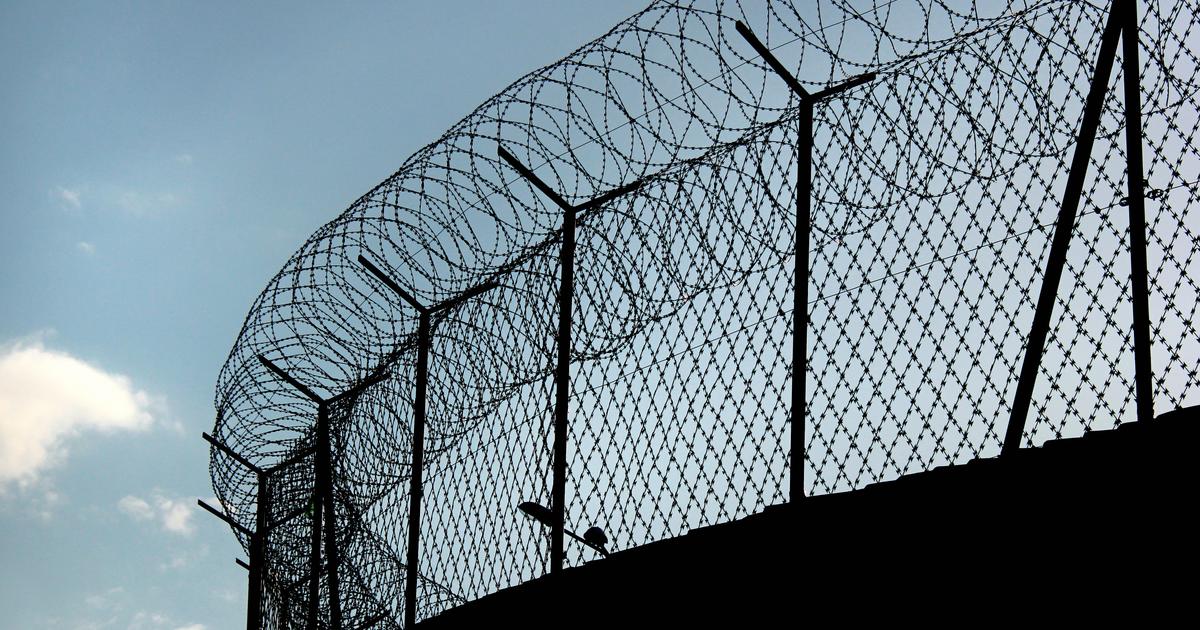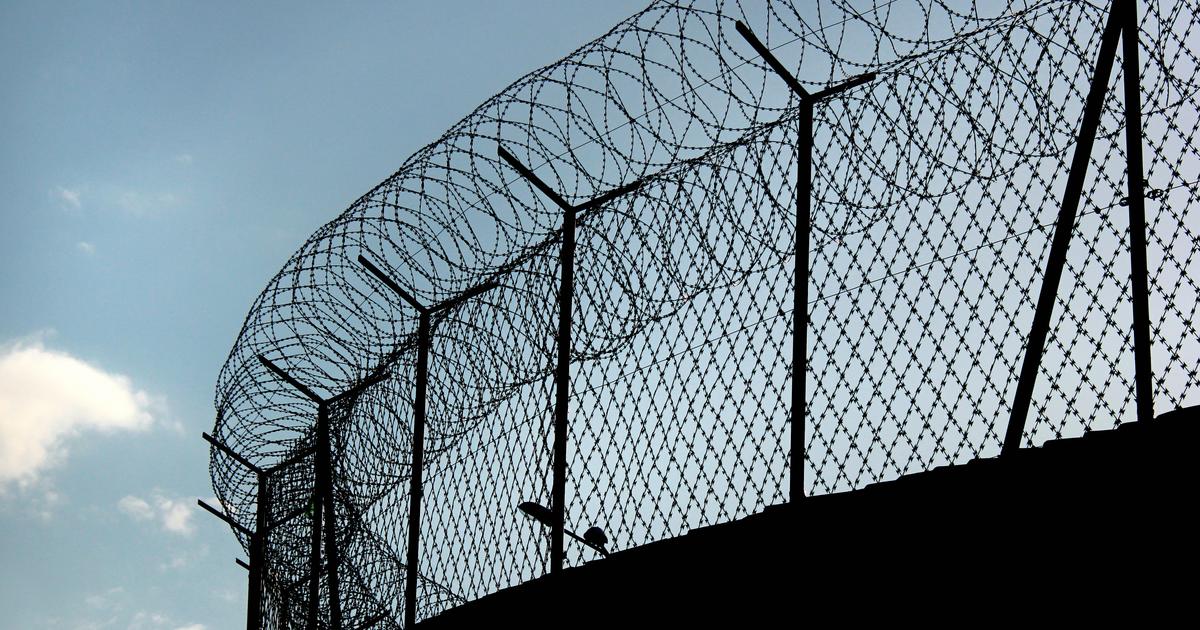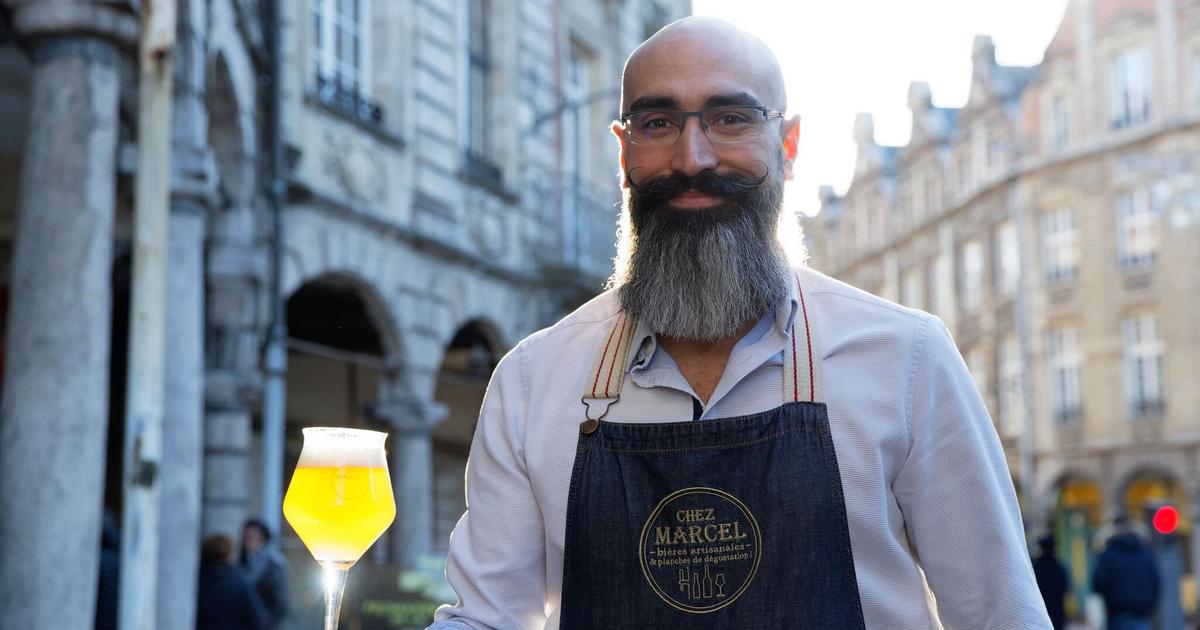Vicenç García and Esther Martín, parents of Marcel, the young man who committed suicide in the Quatre Camins prison. CRISTÓBAL CASTRO
On his last night alive, Marcel García Martín got out of bed to say good night to the official in charge of the count.
Later, in the darkness and silence of his cell, he took off the laces of his sneakers, tied them to the bars of the window and hanged himself.
At 7:30 a.m. on July 25, 2019, another officer found him dead.
He was 19 years old.
Three days earlier, Marcel had verbalized his intention to take the life of a psychologist at the Quatre Camins Youth prison.
Despite the alert call, the prison did not activate the suicide prevention protocol.
A judge from Granollers (Barcelona) is investigating whether Marcel's death could have been avoided and whether the Administration acted negligently.
The young man had spent three months in isolation cell number 7 of the Special Department of the Closed Regime (DERT, for its acronym in Catalan) due to fights with other inmates.
There, alone in a cell of ten square meters, he spent 23 hours a day.
He was due to drop out of first grade in a matter of days.
But an incident with another prisoner in the communications room the weekend before his death (on a Thursday) had extended the punishment for a week.
"For me, that extra week was the trigger that ended up breaking him," explains Esther Martín, the mother of a boy diagnosed with attention deficit hyperactivity disorder (ADHD) and to whom early use of all kinds of drugs —especially cannabis—had caused brain damage.
He was admitted to a psychiatric center for a year and a half, until he was 18. Esther and Vicenç García, the father, say that Marcel had gotten into trouble since he was a teenager.
On one occasion he was arrested and later released for carjackings.
They do not know if there were more episodes.
But it was the first time he was in prison.
Marcel was arrested for assaulting a young man in April 2018 and immediately entered Quatre Camins as a preventive prisoner.
He was awaiting trial for injuries, threats and theft.
His fights with other inmates led him to be classified in the first degree, which means entering one of the DERT cells, the harshest prison regime.
"My son was very ill and he was not there to be put in a DERT, but in a psychiatric unit," Esther laments.
"Perhaps they don't have another punishment system for people who cause problems," concedes Vicenç, who assures that he could only put himself in his son's shoes when home confinement arrived with the pandemic.
The Sunday before the suicide, Esther and Vicenç visited their son.
Through the screen, they had a more or less normal conversation, although the mother suspects that Marcel "was playing the role."
They speculated about what his life would be like back in the module, they talked about a future in freedom once the sentence was completed... Nothing made them think that he wanted to commit suicide.
But the next day, Monday the 22nd —after learning that he would continue in the DERT for a few more days— Marcel exploded in an interview with the psychologist.
As stated in the reports to which EL PAÍS has accessed, the inmate told him that he wanted to "end everything" and that he had already found "the way to do it."
“He states that he does not care about his life or being in the first grade again, nor about his family.
On the contrary, he believes that it will be better if he is not, ”wrote the worker,
He asked her if she had thought about committing suicide.
He answered yes.
Low risk"
The psychologist forwarded her report to those responsible for the center so that they could decide whether to activate the suicide prevention protocol.
The psychiatrist who examined Marcel decided that it was not necessary and, by default, the computer marked the degree of suicide risk as "low".
Consistent with this approach, none of the planned security measures were activated: permanent accompaniment or sleep, inmate “shadow”, removal of dangerous objects, camera viewing or a comprehensive search.
Marcel's parents, residents of Badalona, are convinced that someone did not do their job well and that the Administration, which has the prisoners in its custody, is responsible.
"They did not act when the alarms were on," laments the family's lawyer, Cristian Carci.
The parents fight for the case to remain alive in the Investigating Court Number 1 of Granollers, which filed it twice and was forced to reopen it, as many times, by the Barcelona Court.
The court believes that there are indications to think that perhaps he did not act "properly" to "foresee" the suicide and, in his case, "avoid it with some action".
And he has ordered the Administration to deliver the file with the medical assistance received by Marcel and to explain what it means to activate the anti-suicide protocol,
The Department of Justice of the Generalitat affirms, to questions from this newspaper, that it cannot comment on the specific case of Marcel, but that whenever a suicide occurs, an investigation is opened by the inspection service and the case is analyzed to implement “ elements of improvement.
The suicide prevention framework program entered into force on June 1, 2019 (one month before Marcel's suicide) and gives clinical criteria priority over other types of examinations.
"The interventions and their duration are determined by the type of risk evaluated, the underlying mental pathology and the psychopathological state," according to Justice.
A spokeswoman points out that “suicide prevention is a priority issue” for the department and that a collaboration has just been signed with Health that affects the prevention of suicide among the prison population: the suicide rate among sentenced prisoners (Marcel was preventive ) is six times higher than the general population in Catalonia, according to official data.
Two workers investigated
Two Quatre Camins workers remain under investigation for Marcel's suicide.
One is the psychologist who treated him on the 22nd and confirmed before the judge that the young man had told her that she wanted to end his life.
The other is the psychiatrist who refused to activate the protocol, who stated that when he was required to visit the prisoner he was "happy and motivated", and that he even spoke to him about plans for the future: quitting drugs, enrolling in prison school , who knows whether to have children.
It could not be foreseen, he declared, that the boy "had the intention of committing suicide".
The psychiatrist added that Marcel was dangerous to others, but not to himself.
On the night of July 23-24, Marcel broke the glass of his cell window and suffered some injuries.
It was not the first time: according to a report, he had had "parasuicidal behavior", but they were always "superficial self-harm" whose purpose was to calm anxiety.
On the morning of the 24th, the psychiatrist returned to cell 7. But Marcel no longer wanted to be visited or receive the medication that was offered to him.
He started banging in the cell.
The psychiatrist admitted that he heard the noises, but he did not give it more importance because in the isolation of the DERT it is something frequent.
"I always hear screaming, people punching."
For Vicenç, the father, this attitude is not acceptable: "How is it possible that you listen to a person who you know has problems hitting and leave?", he asks.
“We were told that Marcel was dangerous to others, but not to himself.
They were wrong.
I just want them to acknowledge that they made a mistake."









